What could China learn from UK?
- Published
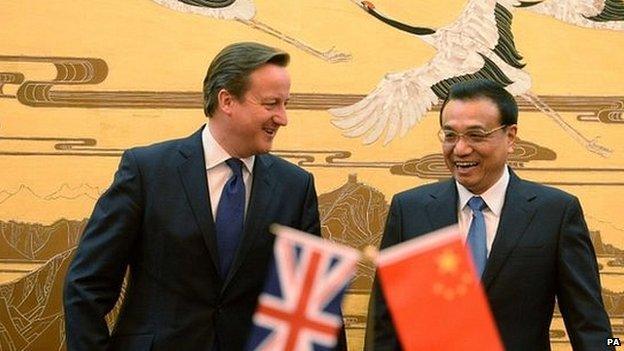
Li Keqiang's first UK trip as Chinese premier is about much more than business deals and handshakes
We're about to witness a blizzard of big numbers around the business deals between China and the UK.
But guess what? I've spent the past ten days asking business insiders (Chinese, British, European) and they all say the deals worth having would happen with or without a prime ministerial handshake.
So while the Chinese premier goes through the ritual dance of signing memoranda and clinking glasses what will he really be doing in London? The answer: observing and learning.
The prevailing orthodoxy in Beijing's more jingoistic media is that China is a confident rising superpower and Britain a declining backwater good only for museums and tourism.
But Li Keqiang knows better. After all he is crisis manager in chief for a country whose scale and complexity are becoming almost impossible to manage. He's also a lawyer and economist who's seen a lot of history in his nearly 59 years, from the hardships of the Cultural Revolution to the heady excesses of China now.
For him, the UK is not a museum but a compelling case study, a country which has weathered industrialisation, urbanization and the rise and fall of empire, all without the bloody revolutions China has been prone to. It is also a country which manages to stay rich despite glaring contradictions. In short, a country worth studying.
Lesson 1: Royalty
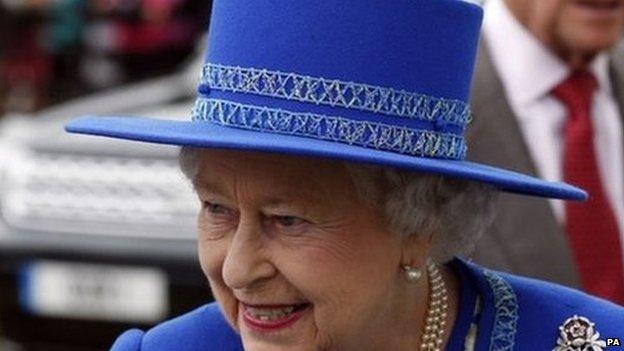
The British monarchy provides an unusual role model for the Chinese Communist Party
It's been reported that Li Keqiang's team insisted on a meeting with the Queen. For them, this makes perfect sense both as a photo opportunity and learning experience.
At home, China's leaders are struggling to find form for what is currently no more than a shallow slogan: 'The China Dream'.
They are looking for a legitimacy to carry them above the fray. The British Royal Family provides an enduring example. It won't be lost on Li Keqiang that the Queen has been on the throne since before he was born. How does she excite affection and allegiance from her subjects? How does she convey values without speechifying? What's the trick to doing pomp and ceremony without bling? And where do you make the magic dust to sprinkle over rising generations so successions happen with no questions asked?
While Li Keqiang ponders answers, he will make the most of the royal photo opportunity. Despite controlling the mainstream media, China's leaders find it hard to master public attention and they know another handshake with a European prime minister in a business suit will not do it.
But royalty is a different matter. Chinese TV audiences have a long history of royal families of their own and a lively appreciation of those that work. They are already transfixed by Downton Abbey, and watching their prime minister meet the Queen at Windsor Castle will provide momentary distraction from dinner, World Cup highlights or a mahjong game.
Lesson 2: Managing the media
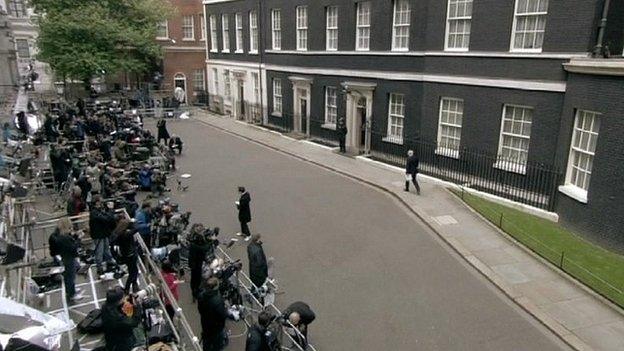
Despite media censorship, Chinese politicians cannot ignore public opinion
"They've turned into our politicians!"
The lament of an anguished European businessman who's been watching Chinese politics for many years. "Once Chinese leaders were engagingly earnest technocrats who made worthy speeches. But now it is all about getting the media message right."
As he grins for the camera, Li Keqiang may share the nostalgia. But he's also a realist. Some imagine that in the absence of an electoral cycle, the one party state can afford to shelve political narratives.
But in China, they couldn't be more wrong. Thirty years of high speed growth has bred an impatient urban generation who have no experience of the hardships which went before. The Chinese Communist Party can't take their loyalty for granted. It has to show that it's working hard to clean the air and provide corruption-free education and healthcare.
And while control is in their Leninist DNA, the smart ones know that in an era of 600 million internet users they can't control the political story by edict alone. That doesn't stop the rest from trying.
The Ministry of Propaganda and the official media pump out a daily stream of orders on what should be reported and how but the only result is to drive the Chinese public ever further onto social media and the anger platforms they provide.
So the relationship between British politicians and their media is worth studying. From a Chinese government perspective, the British press is frankly frightening and outrageous, but they are beginning to discern that successful politicians can still get their messages across and that sometimes the government is believed.
In his time as a provincial party secretary, Li Keqiang faced public scandals over HIV-AIDS from tainted blood, factory fires and mine disasters. Now he does crisis management at a national level with about 100,000 "mass incidents" of protest and rioting a year. No one knows better than he that the most dangerous thing for a government in a crisis is when no one believes you. There may be something to learn in London.
Lesson 3: Soft power - Britain is magic
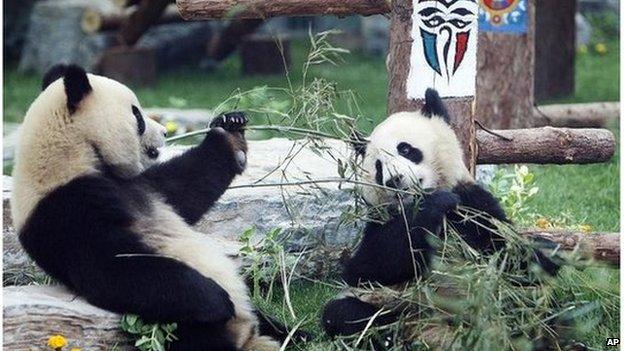
Soft power is crucial to projecting China's image abroad
The Queen tops the Chinese list of "curious British institutions that shouldn't work but do" but there's also the BBC, the Premier League and world-class universities.
When it comes to soft power abroad, China has struggled to move beyond acrobats, pandas and propaganda. Now it wants to give the 'China Dream' an international dimension.
In more ideological times, China's communists would never have acknowledged that British imperial history was about more than money and guns.
But as they face the challenge of growing into their own global role, they are taking a closer look at British colonial administration then and soft power now.
London 2012 was a very different Olympics from Beijing 2008, but the messages about UK film, music and style were not lost on a Chinese audience. Li Keqiang and his team will be puzzling over how Chinese soft power can learn to look like fun.
Lesson 4: Scrubbing up - the London story
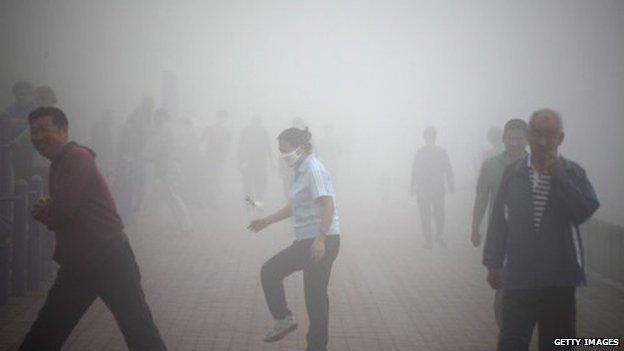
Eliminating air pollution is a pressing challenge for the Chinese government
If lessons one to three are long-term ruminations, lesson four is practical and urgent. Every educated Chinese adult knows that London once languished under a noxious blanket of smog.
The Chinese translation for Dickens' Oliver Twist is 'Orphan of a Foggy City'. But now many of the world's most polluted cities are in China and being seen to do something about this has become life and death for the Communist Party. "How did you clean your air?" is a question to which the Chinese prime minister will want concrete answers which he can implement back home.
For him it's an abiding and personal obsession. Last time he came to the UK was three years ago as vice premier. He visited a business park in Watford and was so impressed by what he saw of sustainable urban design that he brought a British consortium to help design an eco-city in Changsha, central China.
Mark Harrison, of the engineering firm Atkins - Construction companies are not allowed in but the consultancies have a lot to offer - is the urban planner who drew the blueprint.
"Britain was the first to urbanise," he says. "It did it relatively successfully and our multi-disciplinary teams are experienced and innovative. That matches China's ambition."
One of the reasons for urgency is that China is rebuilding itself right now. There are more than 200 new cities under construction and if China doesn't get them right it will have to live with the smoggy, gridlocked consequences for generations to come.
China still has a top-down Soviet style planning model, one which avoids public consultation as much as possible because it fears projects will be paralysed by argument. And in contrast to their monolithic image abroad, government bureaucracies don't readily talk to each other, making it hard to design liveable cities with coherent buildings, transport and landscaping or push energy efficient innovation.
Bringing in foreigners is a way of breaking the bureaucratic logjam.
Lesson 5: Thinking
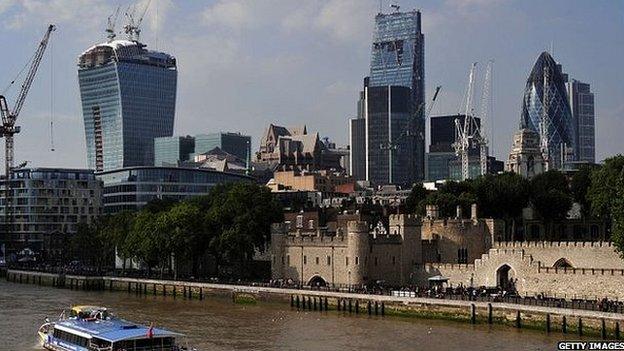
So when the camera's not on him, what the Chinese premier will be doing in London is thinking.
He'll be only too aware that this is a country smaller than many Chinese provinces, and he'll be alive to its failures and contradictions. But failure is relative and contradictions are the stuff of Chinese politics.
Li Keqiang will think hard about British royalty, media management and soft power. But he knows that one of China's most pressing challenges is to get its urban future right and I suspect this is where Britain compels his deepest attention.
Its big cities work in a way that is imaginable for China and those who live in them enjoy a lifestyle many Chinese citizens hope for. Studying that at close quarters is worth enduring a few business toasts and camera flash bulbs.
- Published16 June 2014
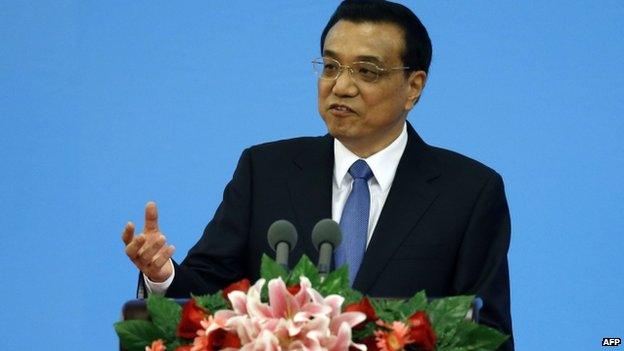
- Published27 October 2023
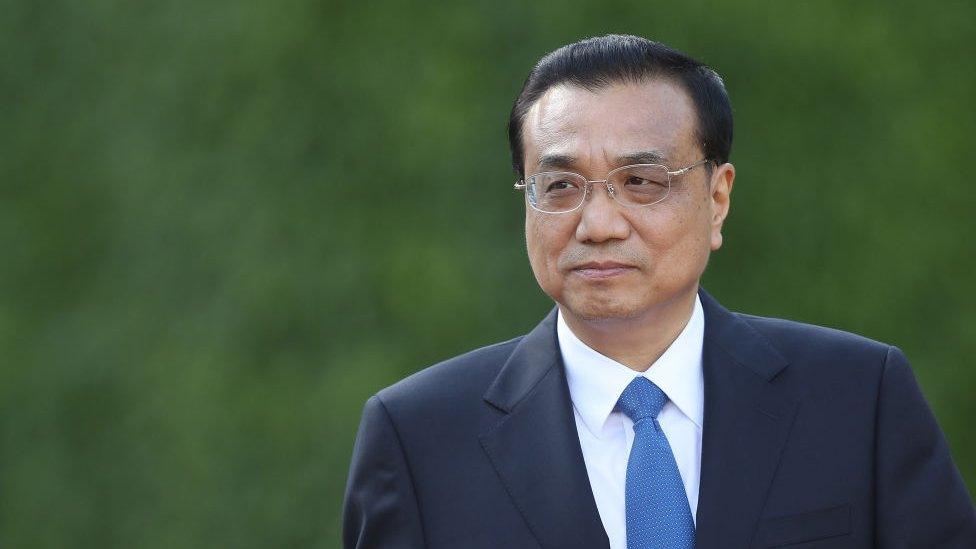
- Published14 May 2014
